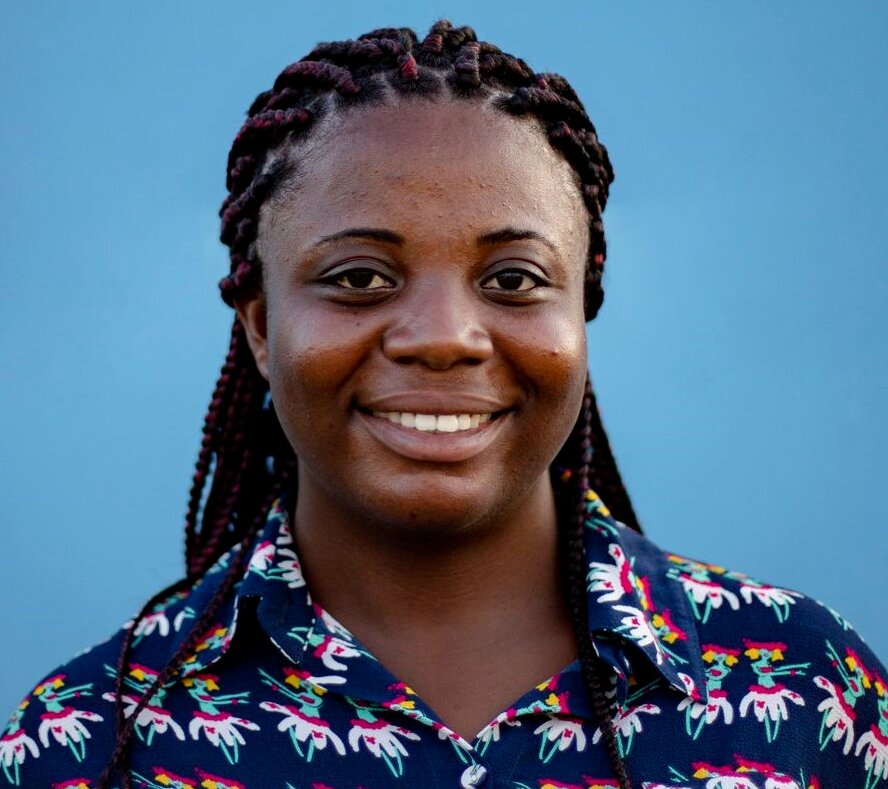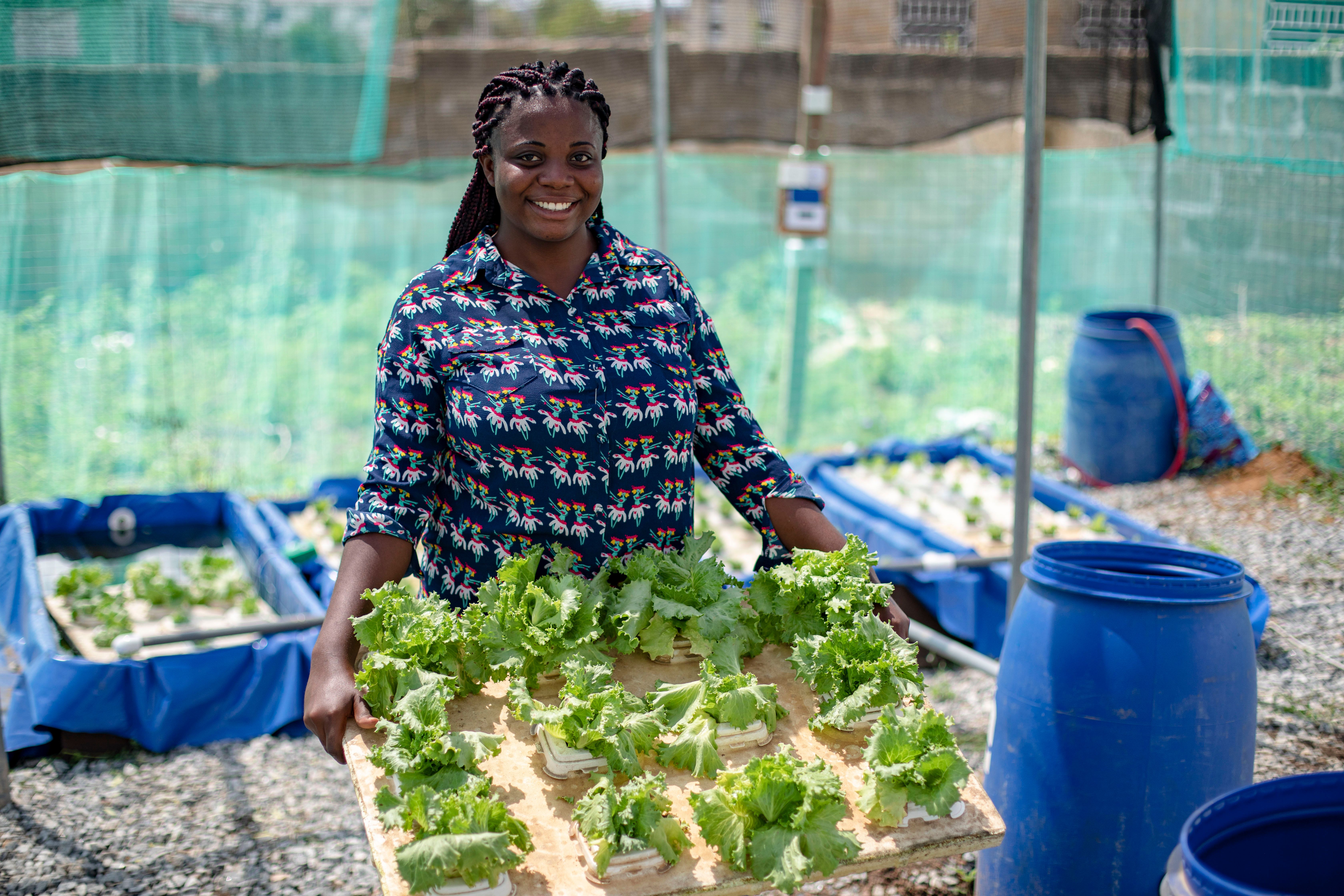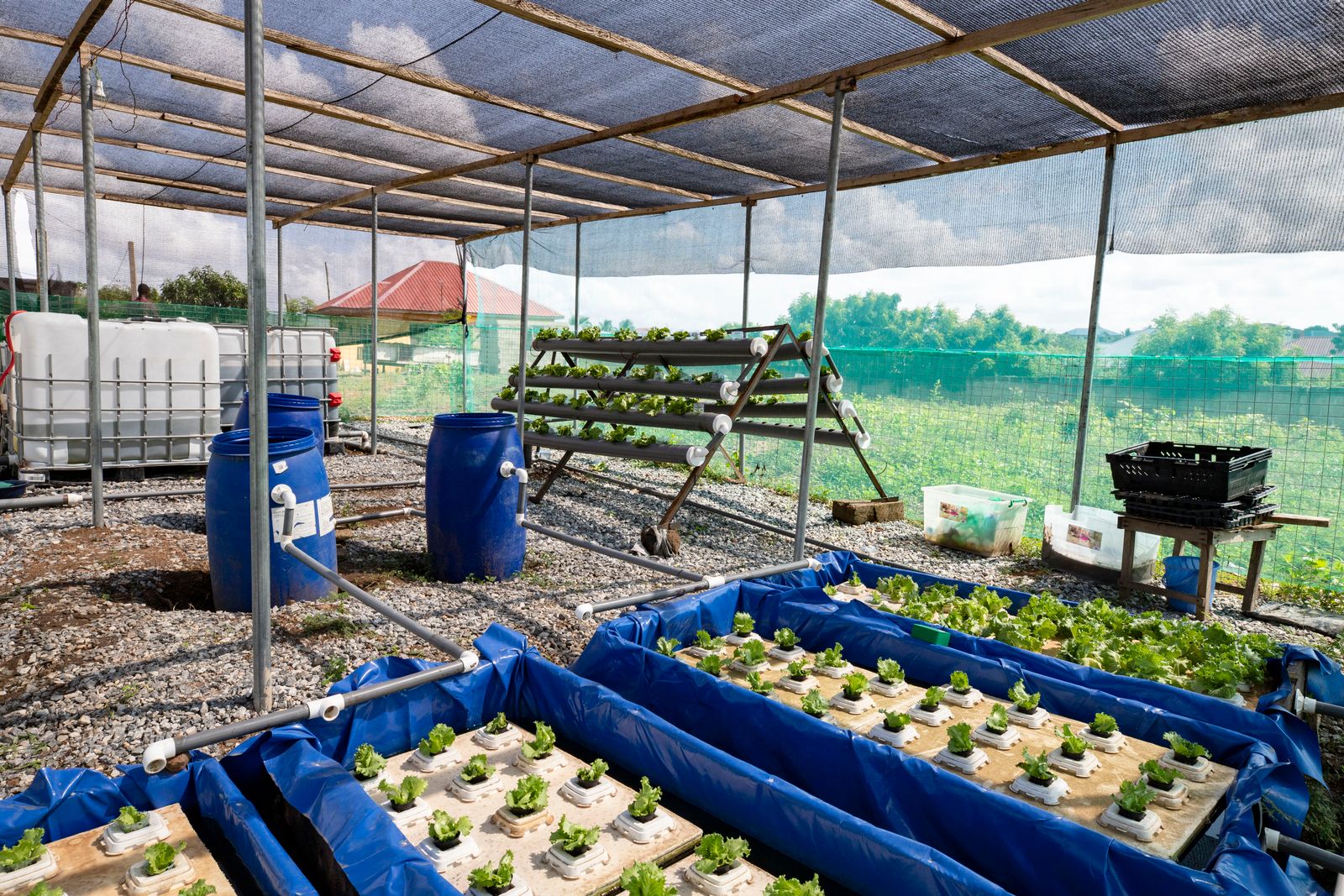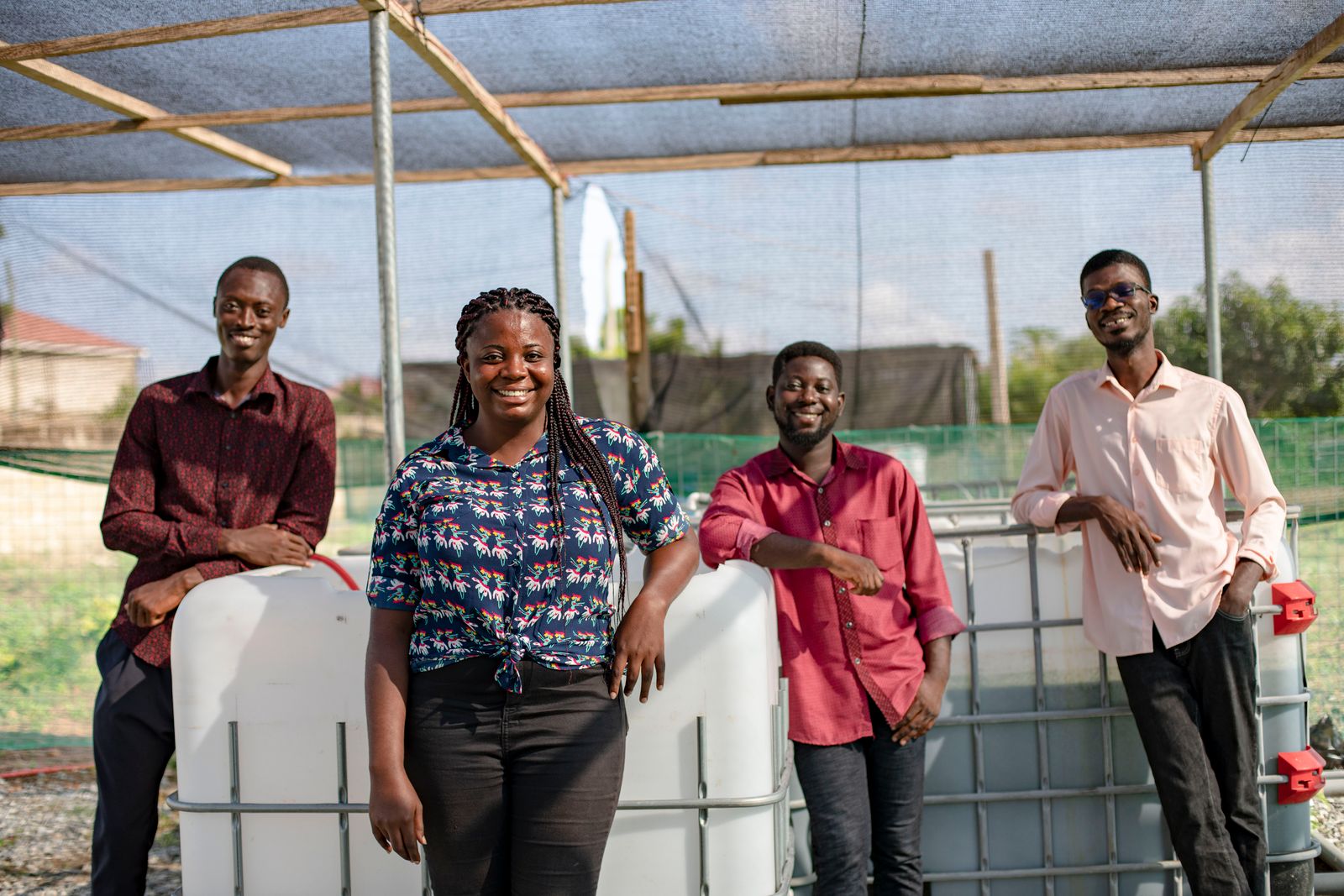1. Can you briefly describe your innovation and tell us what inspired you to create it?
My innovation is called Aquaponics Hub, a solar-powered aquaponics kit that grows fish and vegetables alongside one another using no soil, less water, less space, and plants grow three times faster. With the aquaponics kit, fish wastewater which would have been discarded serves as a resource for growing vegetables. The kit also comes with sensors that check for water quality parameters like pH, dissolved oxygen (DO) and temperature. The mobile app serves as a platform to learn about aquaponics, buy quality inputs and sell aquaponics products, fish, and vegetables.
I started Aquaponics Hub to give people options for urban farming and to serve as a source of employment for myself and other unemployed young graduates.

Lawrencia was recently featured in a CNN documentary about energy innovators in West and East Africa.
2. What are the main lessons you have learned through the Africa Prize training and alumni programme?
The Africa Prize training helped me develop my confidence as a person and aptly get my start-up story aligned. Each time I was required to introduce myself throughout the programme, I had to devise a better way to put my story across so anyone and everyone could understand without difficulty. I learned a lot during the programme and one of the lessons I received and apply until now is what my mentor told me during the programme when I had problems talking about my challenges. She said, "don't be shy about expressing your challenges, if you don't say you're hungry no one would give you food". It is one of the key lessons I learned during my time in the programme. I realised if I don't talk about my challenges, people won’t know I need help or even how to help.
At the end of the programme, I knew I had become an improved version of myself. I am happy my journey with the Africa Prize team has not ended as a result of the alumni community which offered me a chance to connect with previous cohorts among other interesting opportunities and I'm grateful for that.

Sometimes it is through mistakes and “failure” that really great ideas are birthed

3. What stage are you at now and do you have any immediate plans for your innovation?
Currently, I would say we are at the start-up stage and are still gaining traction but we do have immediate plans.
We hope to secure funding to expand the e-commerce operations of our Aquaponics Hub mobile app to sign up one thousand vendors, expand our existing training facility and train five thousand individuals in the next two years while setting up three hundred Aquaponics Hub units.
4. What impact has your innovation had so far in your country or abroad?
So far, we have been able to train 350 young individuals and households in Ghana with skills on the commercialisation and operation of an aquaponics system. As a result of our trainings, a lot of young people are expressing their interest in the field as a viable source of employment which is a positive result because initially perceptions of farming/agriculture among young people were poor. It was considered as work for the “uneducated” village folks, however, that is gradually changing.

5. You were recently featured in a CNN documentary about energy innovators in West and East Africa. How did this come about? What was the best part about filming the documentary?
I was contacted because of the media visibility the Africa Prize programme gave me. When I was contacted by CNN, I would admit I was a bit shocked but amazed because it is one of the biggest media companies in the world. During the interview for the documentary, I was nervous yet excited because I knew I had scored the opportunity to talk about my innovation to a bigger audience.
After the documentary, I have had people contact me for business and to congratulate my team, which evidently validates the great work we are doing with Aquaponics Hub.
6. What one tip for success would you give to your fellow innovators?
Don't be afraid of making mistakes because it is also a way to learn and improve. To be honest, this was something I struggled with myself during the early days of my start-up journey. I was scared of making mistakes, some of which have led to us recording a lot of fish mortalities due to water quality issues. It was also through this experience that the Aquaponics Hub smart sensor was developed, to check for these parameters and help the user make informed decisions to prevent such occurrences. I learned during that moment that sometimes it is through mistakes and “failure” that really great ideas are birthed.
When we make mistakes, we tend to learn why it didn't succeed and how we can make it work better next time. Mistakes are not just mistakes but learning experiences and they are a part of our story.
